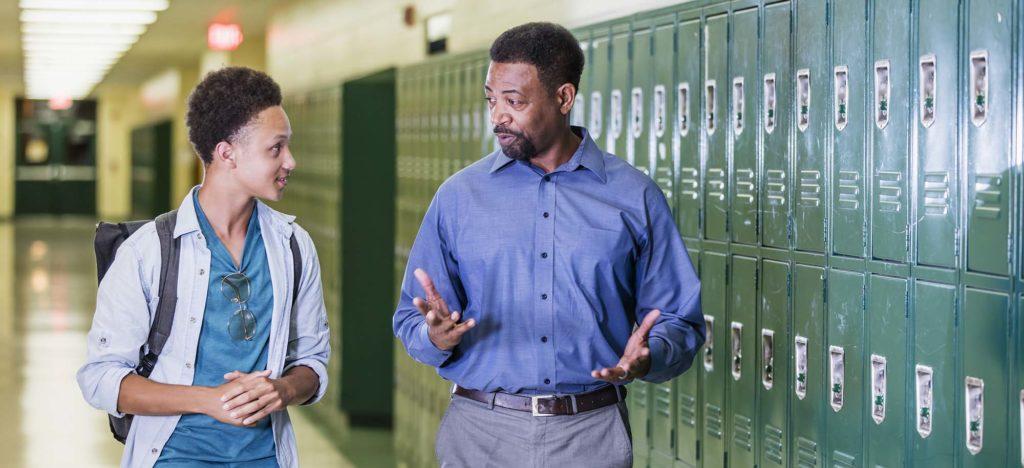Observation
Fostering Student-Teacher Connections Could Help Keep Students Returning From Juvenile Detention in School

Returning to school after time spent in a juvenile detention facility can be a daunting prospect. Not only may students have fallen behind in their education, but many of the educators who are meant to support their return to school may doubt these students’ potential to succeed in the classroom, putting them at further disadvantage, according to research published by Gregory M. Walton (Stanford University) and colleagues in Psychological Science.
“When reentering school, youths have already been told that they do not belong, stereotypes are palpably on the table, and trust has been broken. Even if students approach an educator with a positive mind-set, they may not be well received,” Walton and colleagues explained.
This lack of social support—paired with experiences of violence and trauma, increased rates of mental health issues, discrimination, and other challenges—can contribute to a cycle in which previously incarcerated students, and particularly students of color, are more likely to drop out of school or be reincarcerated going forward.
However, encouraging young people returning from juvenile detention to share their goals for the future with an educator could help them break through these biases to make the connections they need to stay in school and out of the criminal justice system.
“Unlike past interventions, this approach focuses on students and educators simultaneously in an integrated manner,” Walton and colleagues wrote. “Thus, we aimed to support (a) students’ belief in the value and possibility of cultivating positive relationships with educators as well as (b) educators’ receptiveness to those efforts. We targeted the relationship, not either person alone.”
Walton and colleagues explored the value of this intervention through a study of 47 young people, most of them African American boys, returning to mainstream middle and high school over a period of 2 years in Oakland, California. While a third of students received a control intervention focused on study skills, the remaining youths participated in a one-on-one social-belonging intervention that emphasized the importance and possibility of forming relationships with educators at their school. This involved reflecting on personal values related to education, reading stories from older students who had returned to school from juvenile detention, and recording their own advice to students who might participate in the program in the future.
Each student who received this intervention was also asked to write a letter to an educator of their choice, such as a teacher or principal, in which they could request help with achieving their goals for returning to school. Half of these letters were shared with the educators before the students returned to the classroom.
By the end of the 2-year study period, just 29% of students whose letters were delivered had returned to juvenile detention, compared to 69% of students in the control group and 64% of students whose letters were not delivered.
“Only when students and educators were both oriented toward positive relationships with each other did recidivism drop significantly,” Walton and colleagues wrote. “This response is particularly significant given how readily teacher–student relationships become self-fulfilling, especially in contexts of stereotypes and stigma.”
These findings were further reflected in the second part of the study, which focused on how reading anonymized versions of the students’ letters influenced 350 teachers’ perceptions of a hypothetical young person joining their classroom after release from juvenile detention.
Compared to teachers who did not read a letter, those who did reported more positive feelings toward the students, including greater optimism for their academic success, commitment to supporting their learning, and increased trust and respect. Teachers who read a letter also expressed less interest in the crime the student had committed.
Because of the study’s small sample size, these results are only preliminary. However, Walton and colleagues noted, they suggest that relationship-orienting interventions like this one could help educators overcome bias in the educational process.
“Children who are reentering school from juvenile detention are among the most stigmatized students in school,” the researchers wrote. “Understanding that bias is triggered by the social environment, we altered that environment with an intervention that oriented students and teachers toward positive relationships with each other.”
Feedback on this article? Email [email protected] or scroll down to comment.
Reference
Walton, G. M., Okonofua, J. A., Remington Cunningham, K., Hurst, D., Pinedo, A., Weitz, E., Ospina, J. P., Tate, H., & Eberhardt, J. L. (2021). Lifting the bar: A relationship-orienting intervention reduces recidivism among children reentering school from juvenile detention. Psychological Science, 32(11), 1747–1767. https://doi.org/10.1177/09567976211013801





APS regularly opens certain online articles for discussion on our website. Effective February 2021, you must be a logged-in APS member to post comments. By posting a comment, you agree to our Community Guidelines and the display of your profile information, including your name and affiliation. Any opinions, findings, conclusions, or recommendations present in article comments are those of the writers and do not necessarily reflect the views of APS or the article’s author. For more information, please see our Community Guidelines.
Please login with your APS account to comment.